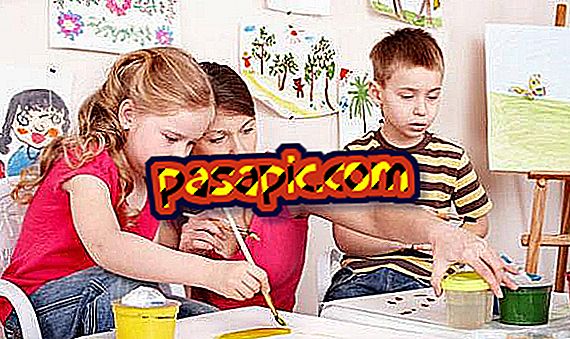How to educate a unique child

For various reasons, the size of families in the West is shrinking and tends to increase the number of families with only one child. At first glance it seems that it will be easier to educate a single child than to more than one, however, the logistical simplicity of educating a single child results in greater psychological complexity: Educating an only child can be very absorbing and stressful to the parents. Having only one child has positive aspects not only for the parents but also for the child: more attention and resources, greater degree of intimacy with the parents ... These advantages also carry risks: The exclusive attention of the parents can foster in the child a concept exaggerated in its importance and attachment can create emotional dependence on the child towards parents. In each family the dynamics will be different and here we only talk about trends that are usually presented in the only children. Below you will find a description of the main psychological challenges that unique children face and some guidelines to face them
one
The only child may have problems establishing his own identity differentiated from that of his parents. The innate instinct that all children have to imitate and want to be like their parents and please them is much more pronounced in the case of the only children . To promote their own identity, we must be careful not to over-praise similarities: We must foster difference by praising the child from an early age when he has done something "in his own way".
two
By not experiencing rivalry, tensions and concessions of the coexistence between siblings, the only child can present a certain degree of emotional immaturity and prefer the company of adults, or children older or younger than them and avoid the company of children their age . The compulsory coexistence with children of his age that takes place in the school can get to solve this problem. For this it is convenient that the child is enrolled at 3 years. If we observe that, in the park for example, the child prefers to play with us instead of playing with the other children we will have to encourage him not to play with him and to encourage leisure activities in which he has to socialize with other children. his age: workshops, sports, theater ...
3
The exclusive attention that parents give to the only child has very positive effects on the self-esteem and self-image of the child that can overflow and become an egocentric attitude. To avoid this we must promote the child's self-esteem and positive self-image without falling into unrealistic exaggerations, always giving him a descriptive feedback from a very young age ("How I like this red flower you have painted!" Instead of "How well you draw, is the most beautiful flower I've seen! ") along with realistic stimuli (I congratulate you, you have taken a 7 in math, to see if the next exam you can get an 8! Instead of"! You are the smartest the class and you can get the best grades of the class! ")
4
The attachment between the parents and the only child makes the child feel very safe and protected and lays the foundations for a strong independence as the child matures since well taken this attachment makes the adult only child feel safe also when He is not with his parents. Badly managed attachment generates anxiety in the only child when it is not with their parents. In order for the child to inherit only the good side of attachment, we must encourage his individuality with activities that differentiate him from us, encourage him to make his own decisions, encourage him to take care of himself: From a very young age we can introduce self-care activities of which blame the same as brushing teeth, making the bed ... These activities will be expanded and complicated as the child grows, we must also allow and encourage the child to spend time with friends or other children of their age.
- If you have problems educating an only child you can contact a pedagogue or a psychologist.


